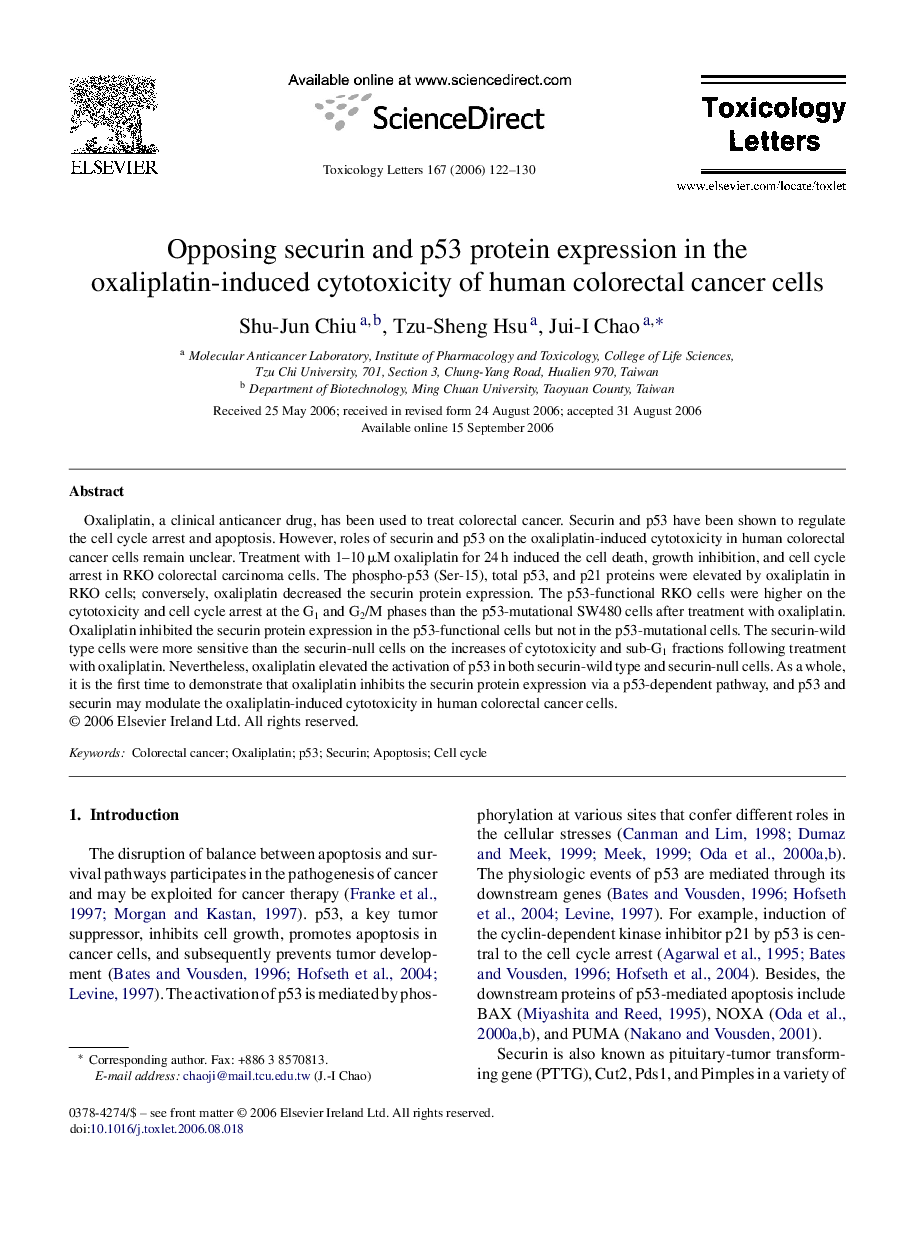| کد مقاله | کد نشریه | سال انتشار | مقاله انگلیسی | نسخه تمام متن |
|---|---|---|---|---|
| 2601070 | 1133297 | 2006 | 9 صفحه PDF | دانلود رایگان |

Oxaliplatin, a clinical anticancer drug, has been used to treat colorectal cancer. Securin and p53 have been shown to regulate the cell cycle arrest and apoptosis. However, roles of securin and p53 on the oxaliplatin-induced cytotoxicity in human colorectal cancer cells remain unclear. Treatment with 1–10 μM oxaliplatin for 24 h induced the cell death, growth inhibition, and cell cycle arrest in RKO colorectal carcinoma cells. The phospho-p53 (Ser-15), total p53, and p21 proteins were elevated by oxaliplatin in RKO cells; conversely, oxaliplatin decreased the securin protein expression. The p53-functional RKO cells were higher on the cytotoxicity and cell cycle arrest at the G1 and G2/M phases than the p53-mutational SW480 cells after treatment with oxaliplatin. Oxaliplatin inhibited the securin protein expression in the p53-functional cells but not in the p53-mutational cells. The securin-wild type cells were more sensitive than the securin-null cells on the increases of cytotoxicity and sub-G1 fractions following treatment with oxaliplatin. Nevertheless, oxaliplatin elevated the activation of p53 in both securin-wild type and securin-null cells. As a whole, it is the first time to demonstrate that oxaliplatin inhibits the securin protein expression via a p53-dependent pathway, and p53 and securin may modulate the oxaliplatin-induced cytotoxicity in human colorectal cancer cells.
Journal: Toxicology Letters - Volume 167, Issue 2, 1 December 2006, Pages 122–130